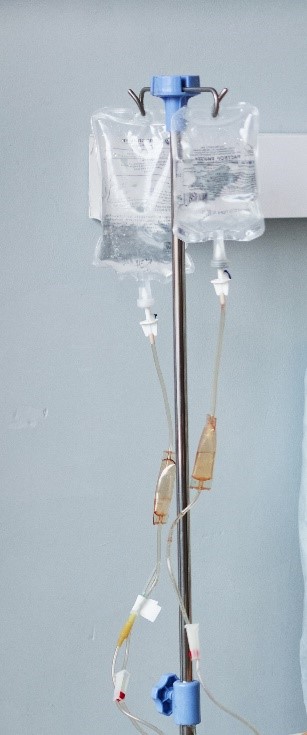

Lung cancer is typically diagnosed after a lung biopsy during which tissue is removed from the lung and examined under a microscope. A pathologist will then issue a report specifying the type of lung cancer. The three most common types of never-smoker lung cancer are adenocarcinoma, squamous cell carcinoma and small cell lung cancer. According to the CDC, “about 50% to 60% of lung cancers found in people who never smoked are adenocarcinomas (cancer that begins in the cells that line the lung’s tiny air sacs and make substances such as mucus). About 10% to 20% are squamous cell carcinomas (cancer that forms in the thin, flat cells lining the inside of the lungs). A few (6% to 8%) are small cell lung cancers, and the rest are other types of lung cancer.”
It is important to note that the occupational exposures most usually encountered by railroad workers (asbestos, diesel exhaust, silica, ballast dust, second-hand tobacco smoke) are capable of causing all three major lung cancer cell types. These exposures place railroad workers at increased risk of developing cancer, even if they never smoked cigarettes.
All three of the major lung cancer cell types have the same symptoms, specifically chest pain, frequent cough, coughing up blood, wheezing and shortness of breath.
Traditionally, the first line of treatment for lung cancer is surgery, chemotherapy, radiation or immunotherapy depending on the cancer cell type, the stage at diagnosis, and the exact location of the tumor(s). Recent advances in medicine, including Next Generation Sequencing (NGS) and certain targeted therapies are offering new hope for lung cancer patients.
Next Generation Sequencing (NGS) testing is becoming more common after a cancer diagnosis. NGS allows doctors to test the pathology material and look for specific gene mutations that may be present in the tumor. There are two different types of gene mutations: (1) germline mutations and (2) somatic mutations. Germline mutations are inherited and passed from parents to offspring. Examples of germline mutations are cystic fibrosis and sickle cell disease. Somatic mutations occur during a person’s lifetime and do not pass to offspring. Environmental exposures to lung carcinogens, including asbestos, diesel exhaust, silica, and SHTS, can cause somatic mutations that cause or contribute to lung cancer.
After a lung cancer patient undergoes NGS testing and specific somatic gene mutations are identified, a personalized treatment protocol can be developed that targets those specific gene mutations that are present in the cancer. This targeted therapy has shown great promise in terms of increasing the life expectancy of those persons diagnosed with certain types of lung cancer. Some examples of gene mutations that may be present in lung cancer include EGFR, ALK, P53, KRAS, ROS1, and others. You should speak to your doctor about NGS and treatment options that are available to you.
EGFR mutations are often times found in non-smokers, remote smokers, women and persons living in Asia. Persons who test positive for EGFR mutation are likely to experience rapid cell (cancer) growth and therefore are often diagnosed with late-stage lung cancer. The good news is that targeted treatments with Tyrosine Kinase Inhibitors (TKI) have shown to be highly successful in clinical studies. According to the American Cancer Society, examples of TKI which have proven effective in EGFR-positive patients with lung adenocarcinoma include but are not limited to Afatinib, Dacomitinib, Erlotinib, Gefitinib, or Osimertinib. Patients should speak to their oncologists about the best TKI for their individual situation. It is important to note that TKI do not cure cancer but they are effective at helping to shrink the tumor and slow the growth, thereby increasing life expectancy.
Importantly, some studies have investigated the relationship between occupational exposures and EGFR mutations. For example, a study published by Yilmaz et al in 2021 stated that, “EGFR was found to be highly expressed in the asbestos-induced cells that cause cell proliferation and tumor promotion…In conclusion, the results obtained from the current study lead us to think that ALK rearrangements and EGFR mutations can be detected more frequently in lung adenocarcinoma cases with asbestos exposure, especially in non-smokers.” (Yilmaz 2021)
Similarly, published studies have found that exposure to Polycyclic Aromatic Hydrocarbons (PAHs), which are found in locomotive diesel exhaust, can cause EGFR damage. A study by Chen et al in 2021 found that PAH exposure led to damage in exon 19 and exon 21 of the EGFR gene. (Chen 2021)
ALK is a protein that instructs your body about how to produce proteins that assist cells in communicating with each other. Persons with ALK-positive lung cancer are often younger and are never smokers (or remote smokers). The American Cancer Society has reported that certain drugs have proven effective in treating ALK-positive adenocarcinoma lung cancer: Crizotinib, Ceritinib, Alectinib, Brigatinib, and Loriatinib. All of these are administered by pill.
As noted above in the discussion about the Yilmaz study, there are certain studies that have reported that ALK rearrangements are found more frequently in persons with asbestos exposure (Yilmaz 2021).
According to the National Cancer Institute, the P53 gene is a “gene that makes a protein that is involved in cell signaling pathways that control cell growth, cell maturation, and cell death. The natural, unchanged form of the gene is called wild-type KRAS. Mutated (changed) forms of the KRAS gene have been found in some types of cancer, including non-small cell lung cancer…”
The American Cancer Society (ACS) estimates that 25% of lung cancer patients with non-small cell lung cancer (NSCLC) have some type of KRAS mutation, usually a G12C mutation. KRAS mutations can lead to abnormal cell growth. The ACS has concluded that Sotorasib (Lumakras) is an effective inhibitor drug that can help stop uncontrollable cancer cell growth in persons with the KRAS G12C mutation. Sotorasib is available to treat NSCLC after one other standard first-line therapy has been tried (surgery, chemotherapy, or radiation). Sotorasib is typically taken by pill, once per day.
Various studies have been published evidencing that asbestos exposure increases the likelihood of KRAS mutations (Nelson et al 1999).
According to the National Cancer Institute, the P53 gene is a “gene that makes a protein that is found inside the nucleus of cells and plays a key role in controlling cell division and cell death. Mutations (changes) in the p53 gene may cause cancer cells to grow and spread in the body. These changes have been found in a genetic condition called Li-Fraumeni syndrome and in many types of cancer. The p53 gene is a type of tumor suppressor gene.”
Certain workplace exposures have been associated with an increased risk of P53 mutations, including occupational exposure to asbestos (Wang et al 1995).
The National Cancer Institute defines the ROS1 gene as “a gene that makes a protein that is involved in sending signals in cells and in cell growth. Mutated (changed) forms of the ROS1 gene and protein have been found in some types of cancer, including non-small cell lung cancer (NSCLC)…”
The American Cancer Society estimates that about 1-2% of NSCLCs are positive for ROS1 and the targeted treatment drugs that are available include: Crizotinib (Xalkori), Ceritinib (Zykadia), Lorlatinib (Lorbrena), and Entrectinib (Rozlytrek). All of these are administered by pills.
It is important that railroad workers with lung cancer speak to their doctors to get the most up-to-date medical and treatment information because so many new studies are being published about NGS, newly discovered mutations, and new targeted treatments.
Railroad workers who never smoked cigarettes have a much higher risk of developing lung cancer (and other cancer types) because of their workplace exposures. Please contact us if you would like to confidentially discuss your legal rights. All claims are handled on a contingency fee basis so there is no legal fee owed unless there is a recovery.



© 2025
Doran & Murphy, PLLC
All rights reserved | Attorney Advertising